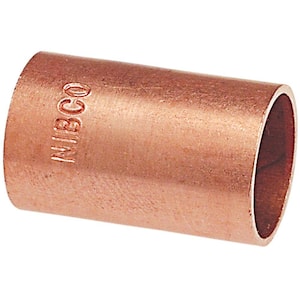Enhancing Your Cooking Area with Premium Copper Products: Tips and Best Practices
Enhancing Your Cooking Area with Premium Copper Products: Tips and Best Practices
Blog Article
Checking Out the Diverse Applications of Copper Products in Modern Industries
From improving the efficiency of electric systems to playing an essential role in sustainable energy innovations, the adaptability of copper is evident. As sectors progressively focus on technology and sustainability, the varied applications of copper call for a closer assessment, specifically concerning their possible impact on future technological innovations and ecological methods.
Electrical Applications of Copper
Copper is an essential material in the electrical market, accounting for approximately 60% of the total need for non-ferrous metals globally - Copper Products. Its premium electric conductivity, which is almost twice that of aluminum, makes it the favored choice for a large range of electrical applications. From electrical wiring systems in industrial and domestic structures to high-voltage power transmission lines, copper guarantees efficiency and dependability in electricity delivery
Along with electrical wiring, copper is important to the production of electrical elements such as motors, generators, and transformers. These elements take advantage of copper's thermal conductivity and malleability, important for heat dissipation and effective efficiency. In addition, copper's resistance to corrosion enhances the lifespan and sturdiness of electrical systems, making it a cost-efficient solution in the long term.
The growth of renewable resource sources, such as solar and wind power, has further enhanced the need for copper in electric applications. As markets change in the direction of sustainable energy options, copper's role becomes much more vital. On the whole, the adaptability and performance attributes of copper strengthen its condition as a cornerstone material within the electric market, driving innovation and effectiveness across numerous applications.
Pipes and Piping Solutions
In modern plumbing systems, the option of products considerably influences both performance and long life. Copper has actually arised as a preferred alternative because of its one-of-a-kind homes, including rust resistance and antimicrobial attributes. These qualities make sure that copper piping continues to be durable and secure for transferring potable water, an important consideration in residential and commercial applications.
One of the essential benefits of copper in plumbing is its ability to endure heats and stress, making it suitable for a variety of applications, from warm water systems to home heating and cooling networks. Furthermore, copper's flexibility permits simpler installment in complicated piping formats, minimizing the danger of leakages and failings.
An additional noteworthy benefit is copper's lengthy life-span, often surpassing half a century with appropriate upkeep. This long life not just lessens substitute expenses however likewise adds to sustainable techniques by minimizing waste. Copper's recyclability straightens with modern-day environmental requirements, promoting a round economic situation within the pipes industry.
Copper in Renewable Resource
The convenience of copper extends beyond plumbing applications, playing an essential duty in the renewable resource market. Its outstanding electric and thermal conductivity makes it an essential material in the manufacturing and distribution of renewable resource resources, especially solar and wind power. In solar panels, copper is made use of in solar cells and electrical wiring, facilitating efficient energy conversion and transmission. Its resistance to rust makes certain lasting performance, which is essential for making best use of energy result with time.

Furthermore, as the worldwide demand for electrical cars (EVs) increases, copper's duty in battery systems and billing facilities ends up being much more significant. The material's capacity to carry out power efficiently is integral over here to the performance of EV batteries, enhancing variety and charging rate.
Copper's Role in Electronic devices
Electronic devices manufacturing depends greatly on copper's extraordinary homes, particularly its high electric conductivity and thermal performance. These features make copper a perfect selection for a wide variety of digital elements, consisting of ports, motherboard, and circuitry. The steel's ability to successfully transmit electric signals guarantees very little power loss, which is vital in high-performance electronic tools.
Additionally, copper's thermal conductivity plays a substantial function in warmth dissipation, protecting sensitive parts from overheating. This is specifically important in modern-day electronic devices, where portable designs bring about enhanced heat generation. Copper is likewise favored for its pliability and ductility, enabling it to be quickly shaped into detailed layouts that satisfy the demands of advanced electronic applications.
With the surge of customer electronics, telecommunications, and electric vehicles, the demand for copper in the electronic devices market remains to grow. As innovations in technology evolve, copper stays essential to achieving greater efficiency and integrity in electronic products. Its recyclability further boosts its appeal, as suppliers seek lasting solutions without endangering high quality. Hence, copper stays a foundation product in the ever-expanding field of electronic devices.
Cutting-edge Uses in Manufacturing

One notable application remains in additive production, where copper-based materials are used in 3D printing procedures. This enables the creation of light-weight components and complex geometries, specifically in the aerospace and vehicle markets. In addition, copper's thermal conductivity makes it an optimal choice for warmth exchangers, improving performance in industrial air conditioning systems.
Moreover, the surge of smart manufacturing has actually seen the unification of copper in IoT gadgets, where its conductive abilities sustain sophisticated sensing modern technologies. In the realm of renewable energy, copper is pivotal in the manufacturing of photovoltaic panels look what i found and wind turbines, assisting in extra reliable energy conversion and circulation.
As industries pursue sustainability and development, copper's versatility and efficiency remain to position it as a critical material, driving improvements in production and adding to the development of smarter, much more effective items.
Verdict
In recap, copper products show amazing flexibility across different modern-day sectors. Copper Products. Their remarkable conductivity improves electric applications, while rust resistance makes certain reliability in pipes. The essential duty of copper in renewable power and its important function in electronic devices highlight its importance in advancing lasting methods. In addition, cutting-edge uses in making highlight copper's adaptability and enduring significance. Collectively, these applications illustrate copper's crucial contribution to technological development and industrial effectiveness in modern society.
From enhancing the effectiveness of electrical systems to playing a vital duty in sustainable power innovations, the versatility of copper is apparent. As markets significantly prioritize advancement and sustainability, the diverse applications of copper warrant a closer examination, particularly regarding their prospective influence on future ecological practices and technical improvements.
The development of sustainable energy resources, such as go to this website solar and wind power, has further increased the need for copper in electrical applications. On the whole, the versatility and performance qualities of copper strengthen its status as a keystone product within the electric sector, driving advancement and performance throughout different applications.
The adaptability of copper extends past pipes applications, playing an essential function in the sustainable energy market.
Report this page